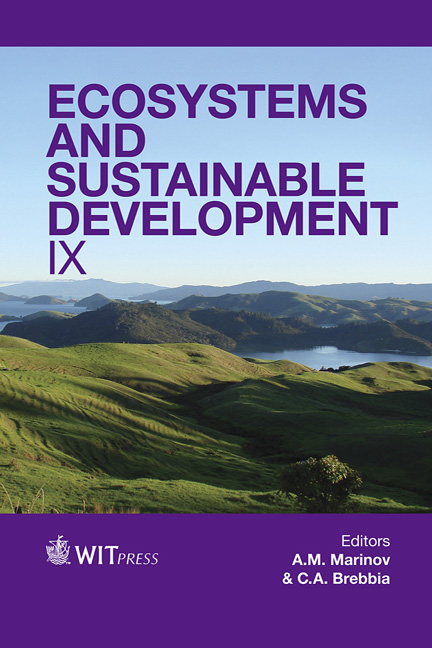The Ongoing Extinction Event: A Deep Time, Eco-evolutionary Perspective For Mitigation And Reconciliation Management
Price
Free (open access)
Transaction
Volume
175
Pages
20
Page Range
57 - 76
Published
2013
Size
372 kb
Paper DOI
10.2495/ECO130061
Copyright
WIT Press
Author(s)
P. R. Pinet, E. K. Pikitch & J. C. Stager
Abstract
The current accelerated extinction tempo and the attendant decline in speciation rates are expected to segue into a mass-extinction event in the next few centuries. It cannot be stopped and will have profound implications for humans not yet born. What can be done? To begin, it is clear that the customary short-term conservation strategies with their scale mismatches fail to work in the long term, because they ignore the slow variables associated with deep time that ultimately drive the eco-evolutionary dynamics of ecosystems. Also, it is clear that large population ranges not only reduce extinction rates, but also enhance speciation rates. Hence, mitigation strategies for protecting as much evolutionary potential as possible during the forthcoming century and subsequent millennia (102–104 years) necessitate a focus on nonlinear, self-organizing, eco-evolutionary complexity that emerges from the slow processes embedded across expansive spatial and temporal scales. Management schemes for the effective protection of eco-evolutionary couplings include restoring apex predators, maintaining ecoevolutionary abundances of important species, linking bottom-up and top-down control of food webs, establishing and protecting corridors between ecosystems, strengthening the negative feedbacks that sustain eco-evolutionary interplay, and protecting and restoring biodiversity and biodisparity. Moreover, given that the vast majority of ecosystems worldwide are human dominated, it is imperative that the geographical range of diverse biota be expanded into these anthropogenic habitats, a sharing of living space promoted by reconciliation ecology. To illustrate the theoretical efficacy of the above, we briefly apply
Keywords
mass extinction, deep time, mitigation strategies, eco-evolutionary dynamics, reconciliation ecology





